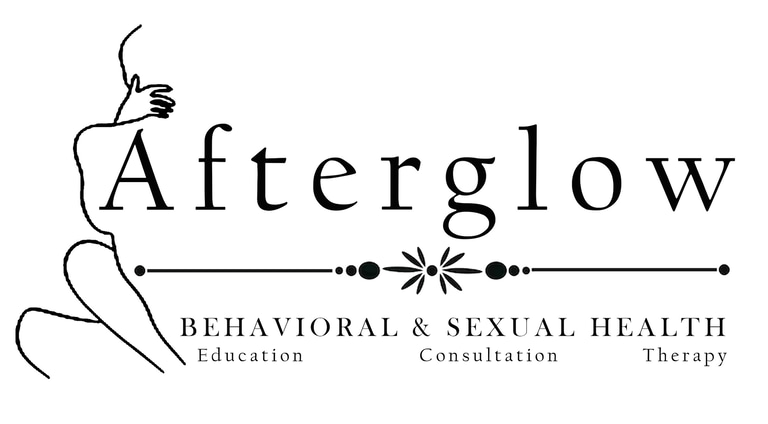Sex and Anxiety: When the Brain Won’t Shut Up but the Body Wants In
This blog dives into the tangled, often hilarious relationship between sex and anxiety—where your brain won’t stop overthinking, but your body still craves connection. With a mix of science, humor, and therapeutic insight, it explores how sex can shift the nervous system from panic to peace. You'll learn about the powerful anxiety-reducing hormones released during intimacy (like oxytocin, serotonin, and endorphins), and discover realistic, low-pressure ways to bring pleasure back into your life—even if you're feeling anxious, awkward, or just stuck in your head. It's a compassionate, data-driven reminder that intimacy isn’t about perfection—it’s about presence, and maybe even healing.
SEX AND MENTAL HEALTH
Dr. Kent
8/21/20254 min read


Anxiety doesn't knock politely on the door of your sex life—it breaks in, sets off the alarm, and then criticizes your performance. It can turn a flirty moment into a mental obstacle course and transform arousal into analysis. “Did I say the right thing?” “Do I look weird?” “Is this normal?” “What if I fart?”—welcome to the sexual inner monologue of the anxious mind.
But what if we told you that sex isn’t just a victim of anxiety—it’s also one of the sneakiest ways to soothe it? That your body, when properly coaxed, can become its own anti-anxiety device? Because that same nervous system that runs screaming through your thoughts during the day can also be retrained—through connection, pleasure, and a flood of hormones designed to say, “Hey, relax. We’ve got this.”
Let’s dig into the data, throw in some humor, and get therapeutic about why sex might just be your most underappreciated ally in the battle with anxiety.
Anxiety and the Bedroom: A Tale of Two Nervous Systems
Let’s start with the basics: anxiety activates the sympathetic nervous system—your “fight, flight, or freeze” setting. It’s great when you need to outrun a bear, but not so great when you’re trying to undress without overthinking every inch of your body. The heart races, muscles tense, thoughts loop, and suddenly even the sexiest scenario feels like a final exam you forgot to study for.
Sex, on the other hand, activates the parasympathetic nervous system—your “rest and digest” mode. It slows the heart, relaxes the muscles, and quiets the mind. But here’s the catch: when anxiety has your nervous system locked in a loop, it’s hard to switch over. That’s where sex—especially mindful, connected, low-pressure sex—can help retrain your brain.
Hormones That Help You Chill the Hell Out
Let’s give credit where it’s due. Sex doesn’t just feel good—it changes your brain chemistry in ways that actively reduce anxiety. Here are the key players:
Oxytocin: Often dubbed the “cuddle hormone,” oxytocin is released during sex, especially orgasm, and promotes feelings of trust, bonding, and emotional safety. A 2021 study in Frontiers in Psychology found that oxytocin release helps deactivate the amygdala, the brain’s fear center, during intimate contact.
Endorphins: These are your body’s natural painkillers and mood boosters. During sex, they’re released in droves, helping to create a state of calm, comfort, and mental ease. Think of them as internal emotional bubble wrap.
Dopamine: The reward hormone. It spikes during sexual arousal and climax, and reinforces positive emotional associations. Less dread, more delight.
Serotonin: This mood stabilizer helps balance anxiety and reduce the obsessive thoughts that often accompany it. After orgasm, serotonin levels rise, creating a soothing post-coital effect that many describe as a “mental reset.”
Prolactin: It’s not just about milk. This hormone surges post-orgasm and promotes a sense of contentment and emotional grounding. Basically, it says, “You’re okay now. Go nap.”
Together, these hormonal shifts mimic the effect of anti-anxiety medication—but without the side effects or insurance co-pays.
Sex as Nervous System Recalibration
In the chaos of anxiety, sex can act like a hard reboot. When done intentionally and gently, it’s not about the goal (looking perfect, performing well, achieving orgasm) but about reconnecting with your body in real time. This somatic experience grounds you in the present—something anxiety hates.
Research from the Journal of Psychosomatic Research found that people who engage in regular consensual sexual activity show lower baseline levels of cortisol, the stress hormone. And no, “regular” doesn’t mean every night. Even weekly sex was correlated with improved mood stability, decreased social anxiety, and better sleep quality.
Touch, eye contact, breath synchronization—these aren’t just romantic—they’re neurological switches that help calm the hypervigilant brain.
Low-Pressure, High-Pleasure: A Roadmap for the Anxious Lover
Let’s be clear: jumping into sex when your anxiety is peaking might not be realistic. The goal is not to force pleasure into panic but to create the conditions where it can naturally emerge. Here's how:
Ditch the performance mindset: Sex is not an Olympic event. You’re not being judged. In fact, 99% of the time, your partner is just thrilled to be there and equally insecure.
Use humor to defuse fear: Laughter lowers cortisol. If you queef, make a joke. If you bump heads mid-kiss, laugh. Vulnerability and silliness are sexy.
Start small: Hold hands. Cuddle. Take a bath together. Build a bridge to intimacy rather than leaping into it like a stunt double.
Communicate openly: Saying, “Hey, I’ve been anxious lately, but I want to feel close to you,” is powerful. It invites your partner into the solution rather than isolating them in the problem.
And remember: sex doesn’t have to mean intercourse. Touch, massage, mutual pleasure—these are all anxiety-reducing forms of connection.
What About Solo Sex? Still Counts. Still Calms.
If you’re flying solo or just not ready to bring someone else into your anxiety bubble, good news: masturbation releases many of the same anxiety-reducing hormones as partnered sex. A 2023 study from the Journal of Sexual Medicine found that individuals who practiced regular mindful self-pleasure reported lower levels of general anxiety and improved sleep. Self-touch isn't just stress relief—it’s body literacy and emotional grounding.
So yes, your vibrator might be a better therapist than your last therapist. And yes, you can be your own safe space.
Sex Isn’t a Cure, But It’s a Damn Good Co-Pilot
Sex won’t cure anxiety—but it can offer refuge, relief, and recalibration. It’s a grounding force when your mind is spinning out, a way back into your body when the hamster wheel of worry has you sprinting nowhere fast. When engaged with consent, trust, and attunement (even solo), sex can shift your nervous system from high alert to calm connection. It's not magic—it’s neurobiology doing its thing.
Final Thoughts
And if anxiety is persistent and interfering with your ability to experience pleasure or connection, therapy can be a game-changer—especially with someone who understands the mind-body-sex connection. Anxiety is treatable. You are not broken. Your libido is not defective. Sometimes, it just needs the right conditions to breathe.
In a culture that glorifies constant productivity, high performance, and flawless presentation, slowing down enough to feel good in your own skin is radical. Reclaiming pleasure in the face of anxiety is a quiet rebellion—and a profound kind of healing. Sex won’t solve all your problems. But it might just remind you that you're still here, still worthy, still wired for joy.
So take a breath, ease into your body, and let the Afterglow begin.
Connect with us
© 2025. All rights reserved.
dr.kent.sexhealth@gmail.com


